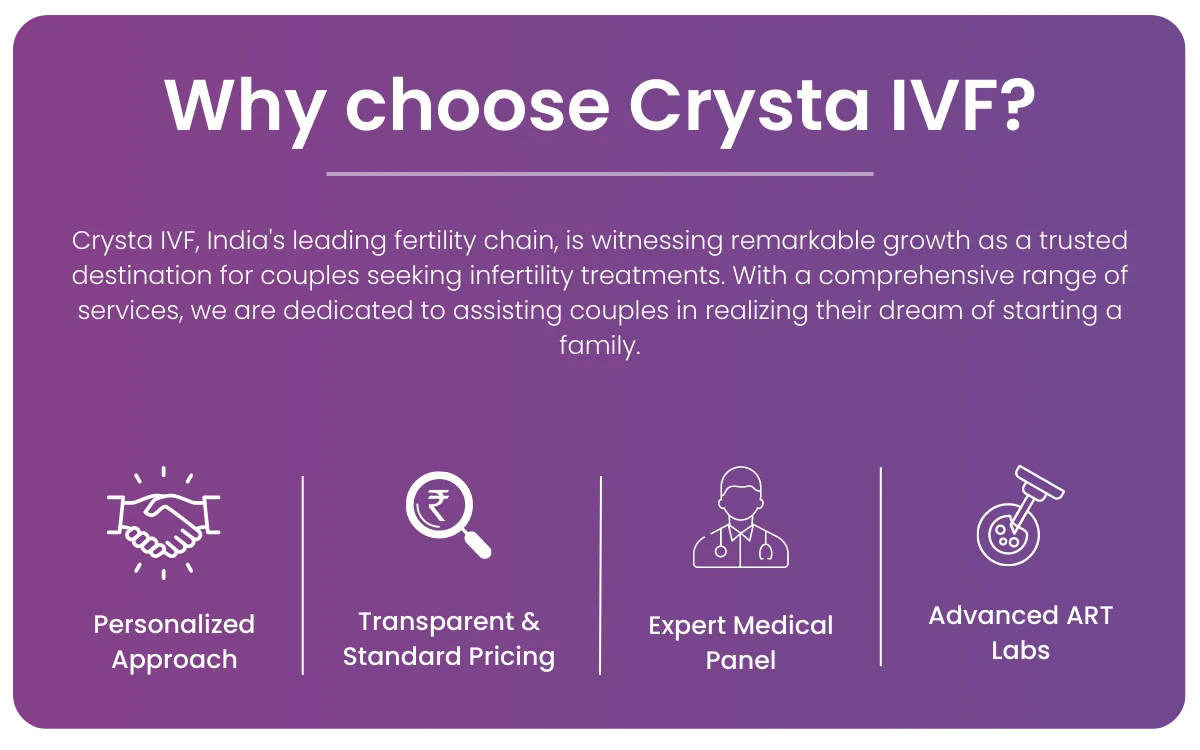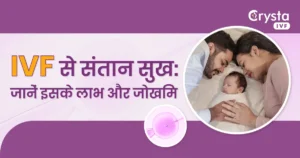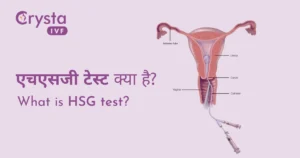It’s no secret that trying to conceive can be stressful and emotional for couples. When you’re struggling to get pregnant, it can feel like everyone around you is pregnant except for you.
You may even feel like your body is failing you, which can be very difficult to deal with.
Couples struggling to conceive have a lot of tough decisions to make, and one of the most difficult is whether or not to pursue IVF treatment. It’s essential to learn as much as possible about IVF before making a decision, as it’s not always the best option for everyone, but sometimes it is the only option.
So, this guide will provide some tips on making this decision, as well as explain why IVF may be the best option for you and your partner.
But before that, let’s understand a brief about In Vitro Fertilization (IVF).
Understanding In-Vitro Fertilization (IVF): A Step-By-Step Look
In vitro fertilization (IVF) is a kind of Assisted Reproductive technology by which an egg is fertilized with sperm in a laboratory dish. Then the resulting embryo is transferred to the uterus.
IVF may be an option for couples who are struggling to conceive due to problems with ovulation, fallopian tubes, or sperm function.
The term IVF is often used interchangeably with ‘Test Tube Baby’ because the phrase ‘in Vitro’ is a Latin term meaning “within the glass.”
As the fertilization process in IVF is done in a glass vessel, a baby conceived through an IVF procedure is sometimes called a ‘Test Tube Baby,’ a non-medical term used by people to refer to IVF.
Couples who want to have children but are having trouble conceiving often feel confused and anxious about fertility treatments like IVF. But in fact, the process is quite simple. Let’s understand how –
- When you visit a fertility doctor for the first time, they will collect your medical history and run some essential fertility tests. Fertility clinics like Crysta IVF will create an IVF treatment plan tailored specifically for you and your unique situation.
- The further process involves using fertility medications or surgical procedures to stimulate ovulation (release of an egg).
- Once the egg has matured, it is retrieved using a needle in a small surgical procedure.
- On the same day, a sperm sample is provided by the male partner.
- In the fertilization process, the egg & sperm are placed in a dish in a laboratory condition.
- Fertilization results in the embryo which is transferred back to the uterus for implantation
- Most pregnancy tests are scheduled 2-3 weeks after embryo transfer.
IVF treatment can be confusing and anxiety-inducing for many couples struggling with infertility. But in fact, if you consider, the entire IVF process is actually quite simple, made up of just three key steps: Stimulation, Retrieval, and Transfer.
Now that we understand what is In-vitro fertilization and the treatment steps included, who needs this treatment?
When to Consider IVF Treatment?
IVF is recommended for those who’ve been trying for over a year but cannot conceive a child naturally. In other cases, It can also be used to help couples with a history of miscarriage or genetic disorders conceive a healthy child.
Mainly there are 5 reasons why one may consider IVF treatment. These are:-
1. Female Infertility Factors
Out of all the infertility cases, almost half of them are because of female infertility factors. According to a recent report, about 10-15 percent of couples in India are said to have fertility issues. The chances of infertility also rise as the woman ages, especially after 40.
Some of the most common causes that contribute to female infertility include the following –
- Fallopian tube obstruction
- Endometriosis: A chronic condition where an endometrial-like tissue, or lining of the uterus, grows outside of the uterus
- Low ovarian reserve
- Pelvic inflammatory disease
- Woman’s age
- Hormonal imbalance
- Polycystic Ovary Syndrome (PCOS): A health condition caused by an imbalance of reproductive hormones
- Poor egg quality
- Ovulation problems
- Uterine fibroids
Depending on the medical condition and the cause of infertility, your fertility doctor may recommend treatment options such as fertility medications, surgeries, lifestyle changes, or advanced medical treatment like In vitro fertilization (IVF) or Intrauterine insemination (IUI).
2. Male Infertility Factors
Despite the common perception that infertility is primarily a woman’s issue, data from the World Health Organization (WHO) shows that in India, approximately 50% of all cases are due to male factor infertility. This is due to reproductive anomalies in males.
There are many possible causes of male infertility, but the most common include the –
- Sperm anomalies (Low sperm count & quality)
- Malformed sperm
- Genetic disease
- Poor lifestyle choices (excessive caffeine intake or alcohol consumption)
- Environmental factors (exposure to excessive heat, chemicals, infection, or disease)
- Hormonal disorders
- Stress & Depression
- Specific health problems like diabetes, etc.
Also, as men age, their testosterone levels decline and produce fewer sperm. This can too lead to male infertility.
3. Unexplained Infertility
After trying unsuccessfully to conceive for a year or more, you and your partner may be diagnosed with unexplained infertility. This means there is no known cause for your inabilities to get pregnant, such as blocked fallopian tubes or sperm disorders.
In this case, IVF treatment may be recommended to give you the best chance of success.
4. History of Other Unsuccessful Infertility Treatments
For many couples, IVF is often considered after other fertility treatments have failed, such as timed intercourse, Intrauterine insemination (IUI), fertility drug treatment, etc. It is a fact that IVF has a higher success rate than other fertility treatments.
Therefore, if you have had unsuccessful treatments in the past, IVF is the next best and most effective treatment option to pursue pregnancy.
5. Cases Where IVF is the Only Option Left
There are specific infertility or medical cases when IVF treatment is the only option to preserve fertility so one can have a child in the future.
- High risk of genetic disease
- When frozen eggs are used
- Post-cancer fertility treatment
- When a gestational carrier is required
Infertility is a condition that affects millions of people all over the world. It can be difficult, but it doesn’t have to end your parenthood dreams. With these ever-growing medical technologies, parenthood is possible.
Though different infertility options are available today, IVF has emerged as the most effective treatment for infertile couples.
Also Read: Tips for Successful IVF Treatment
In a Nutshell
For many couples struggling with infertility, in vitro fertilization (IVF) is often seen as the last hope to have a child of their own. However, the decision to undergo IVF is not easy, and many factors must be considered before starting down this road.
Oftentimes the most important thing is to do what’s best for you and your partner and what will make you both happy long-term.
Whatever your reason, it is always better to consult a fertility expert as they are experienced and thus can help you make the right decision for you and your family. Fertility doctors at Crysta IVF offer personalized consultations to meet your fertility needs.

They’ll explain everything you need to know about IVF treatment so that you can make the right decision at the right time for your fertility health.




